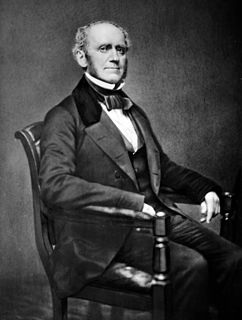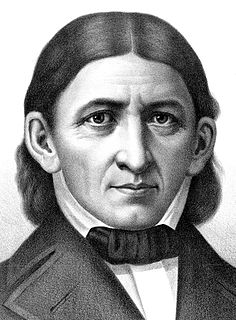A Quote by Thomas Campbell
Related Quotes
Woe to him whom this world charms from Gospel duty. Woe to him who seeks to pour oil upon the waters when God has brewed them into a gale. Woe to him who seeks to please rather than to appal. Woe to him whose good name is more to him than goodness. Woe to him who, in this world, courts not dishonor! Woe to him who would not be true, even though to be false were salvation. Yea, woe to him who, as the great Pilot Paul has it, while preaching to others is himself a castaway.
Song in the Manner of Housman" O woe, woe, People are born and die, We also shall be dead pretty soon Therefore let us act as if we were dead already. The bird sits on the hawthorn tree But he dies also, presently. Some lads get hung, and some get shot. Woeful is this human lot. Woe! woe, etcetera.... London is a woeful place, Shropshire is much pleasanter. Then let us smile a little space Upon fond nature's morbid grace. Oh, Woe, woe, woe, etcetera.
One will hate you for taking his life, another will run to excesses that you scorn. A third will emerge mad and raving, another a monster you cannot control. One will be jealous of your superiority, another shut you out... And the veil will always come down between you Make a legion, you will be, always and forever alone!
The mind grows by self revelation. In play the child ascertains what he can do, discovers his possibilities of will and thought by exerting his power spontaneously. In work he follows a task prescribed for him by another, and doesn't reveal his own proclivities and inclinations; but another's. In play he reveals his own original power.
Each individual composes the music of his own life. If he injures another, he brings disharmony. When his sphere is disturbed, he is disturbed himself, and there is a discord in the melody of his life. If he can quicken the feeling of another to joy or to gratitude, by that much he adds to his own life; he becomes himself by that much more alive. Whether conscious of it or not, his thought is affected for the better by the joy or gratitude of another, and his power and vitality increase thereby, and the music of his life grows more in harmony.
Does the open wound in another's breast soften the pain of the gaping wound in our own? Or does the blood which is welling from another man's side staunch that which is pouring from our own? Does the general anguish of our fellow creatures lessen our own private and particular anguish? No, no, each suffers on his own account, each struggles with his own grief, each sheds his own tears.





































